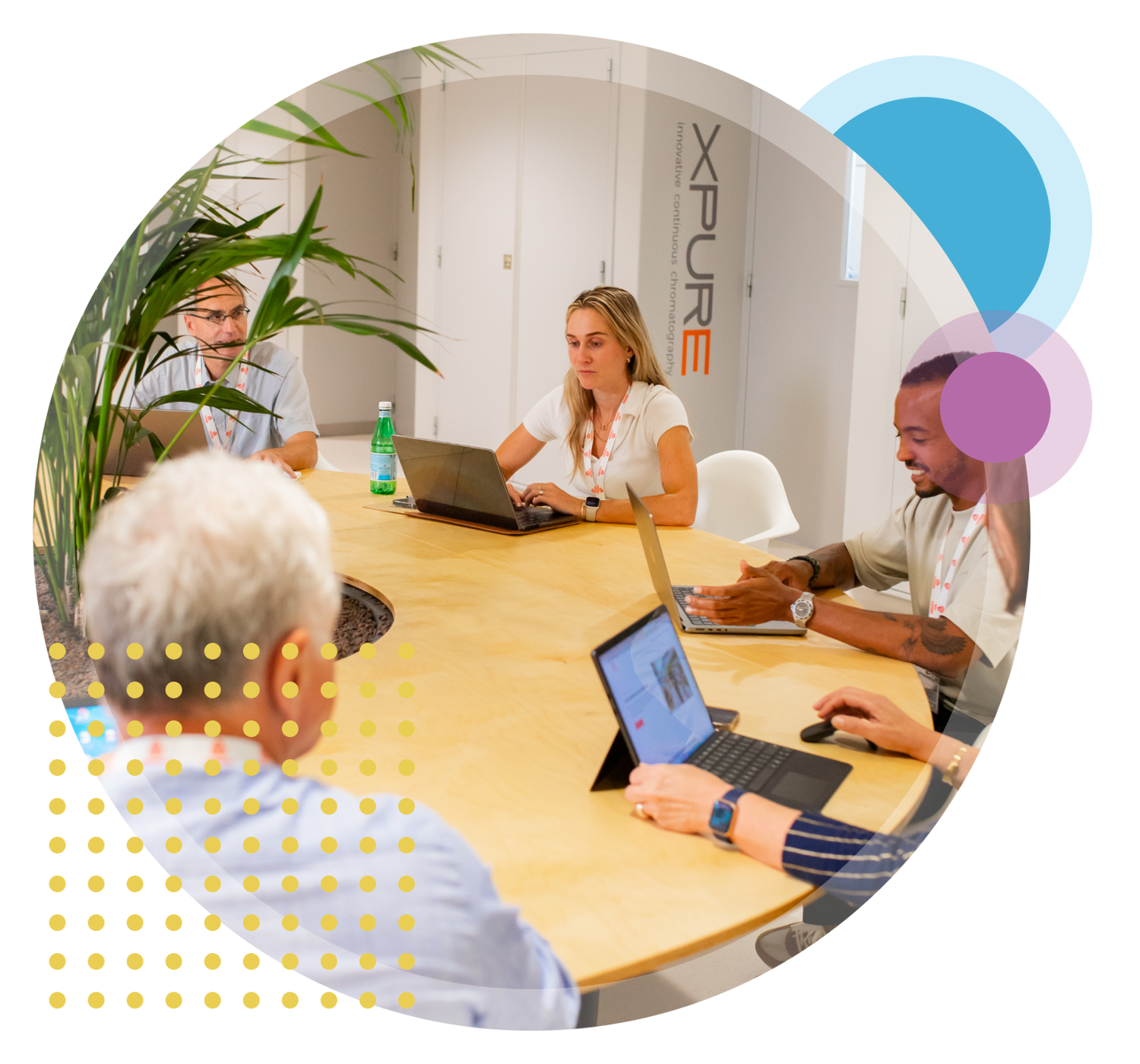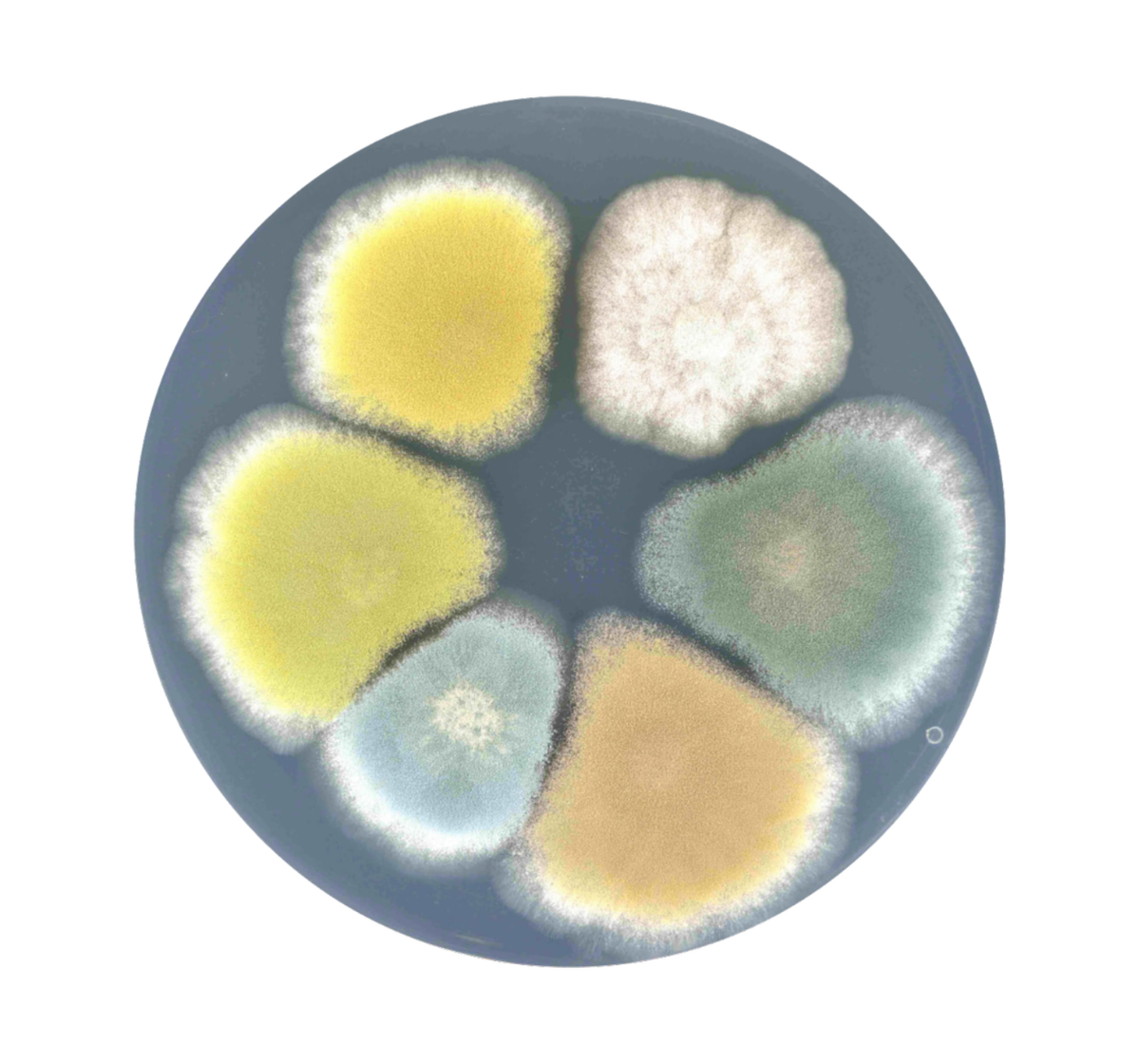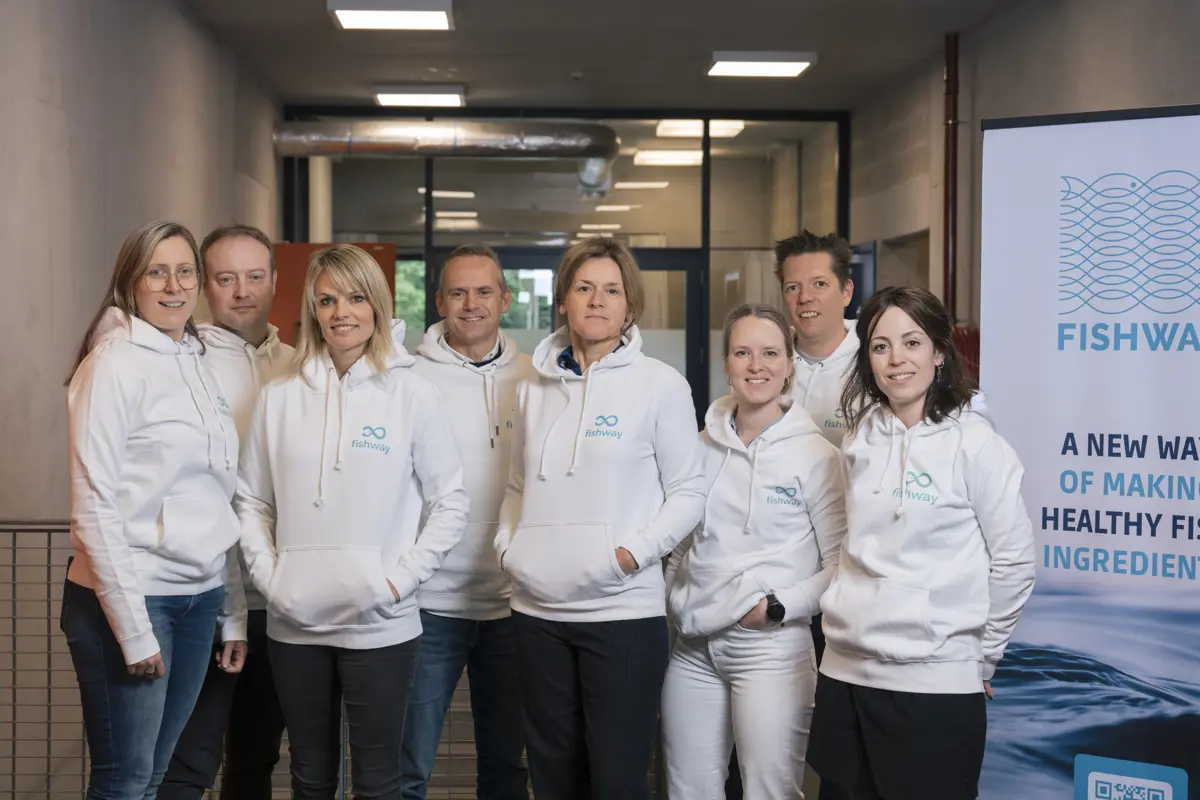News
Stay up-to-date with the latest developments at Planet B.io, where our community of residents, members, and collaborators is always growing and evolving.

Unlocking the power of fungi: Myconeos' journey in innovation
Myconeos is revolutionizing the way we harness fungi for food and beyond. At its core, the company specializes in breeding new fungal strains using proprietary sexual crossing technology, enabling the creation of unique strains for cheese, plant-based foods, and even natural colorants.
Fishway: Innovating the Future of Fish through Cellular Aquaculture
Fishway, member of Planet B.io, is the new kid on the block in the field of cellular aquaculture. Founded by Nina Coolsaet and Sam Van de Velde, Fishway aims to address the pressing challenges faced by the traditional fishing industry, such as overfishing, pollution, and the decline in biodiversity. By producing fish-derived ingredients, Fishway hopes to offer a sustainable alternative that preserves the nutritional benefits of fish without the environmental downsides.
Farmless: Pioneering a Sustainable Protein Revolution
In a world increasingly concerned about the environmental impact of traditional agriculture and the strain it places on our planet's resources, innovative solutions are more crucial than ever. Enter Farmless, a pioneering company dedicated to revolutionizing the way we produce food. The Dutch startup recently joined the Planet B.io community as a member.
Umami Bioworks: Sustainable Seafood. Cultivated, not caught.
Singaporean-headquartered cellular agriculture start-up Umami Bioworks is on a mission to cultivate the future of sustainable seafood by crafting delicious, nutritious, affordable cultivated fish that is better for our health, our oceans, and our future. The company recently joined the Planet B.io community as member. To learn more about the company and its vision, we sat down with Mihir Pershad, the Founder and CEO of Umami Bioworks.
Nature’s Principles: sustainable lactic acid production
At Nature's Principles, they pioneer the circular production of biobased chemicals by using unique fermentation technologies. The Dutch start-up, that recently became a Planet B.io member, is using open mixed culture biochemical production processes, utilizing unrefined and “waste” streams, with a low-cost, low-maintenance, easy-to-operate, highly scalable method, which can produce valuable chemicals such as lactic acid.
Nostics continues mission in Amsterdam
Nostics joined Planet B.io when they were just founded in 2020. Their main focus then; developing a nanotechnology based ultra-rapid COVID-19 testkit that takes minutes instead of hours, with a handheld device. Two years later, Nostics is a successful innovative startup in medical diagnostics, running a platform that allows rapid testing for both viruses and bacteria. By combining nanotechnology, photonics and machine learning, Nostics brings a new type of diagnostics to the world.
Meet the start-up | Upstream Foods
Upstream Foods is developing a novel ingredient to uplevel seafood alternatives. The Dutch start-up, that recently became a Planet B.io member, is using cell-culture methods, to make the tastiest fats that provide all the complex flavors, creamy mouthfeel, and health benefits that people love about traditional seafood.
FUL Foods moves headquarters to Amsterdam
When a company has to move because they simply outgrew Planet B.io, we couldn’t be more proud. FUL Foods was one of the first companies that settled at Planet B.io. But now, after 2.5 years, they are ready to take the next steps as a successful scale-up company and will continue their journey in developing future-proof food products from microalgae in Amsterdam.
Kickstart Fund supports collaboration project between Deep Branch and Delft University of Technology
In 2020, DSM NL established the Kickstart Fund to support the ecosystem around Planet B.io and the Biotech Campus Delft. With a total annual budget of 200 k€, the Fund sponsors activities in three categories: pre-startup support, startup support and ecosystem support. These funds are coordinated by Planet B.io.









